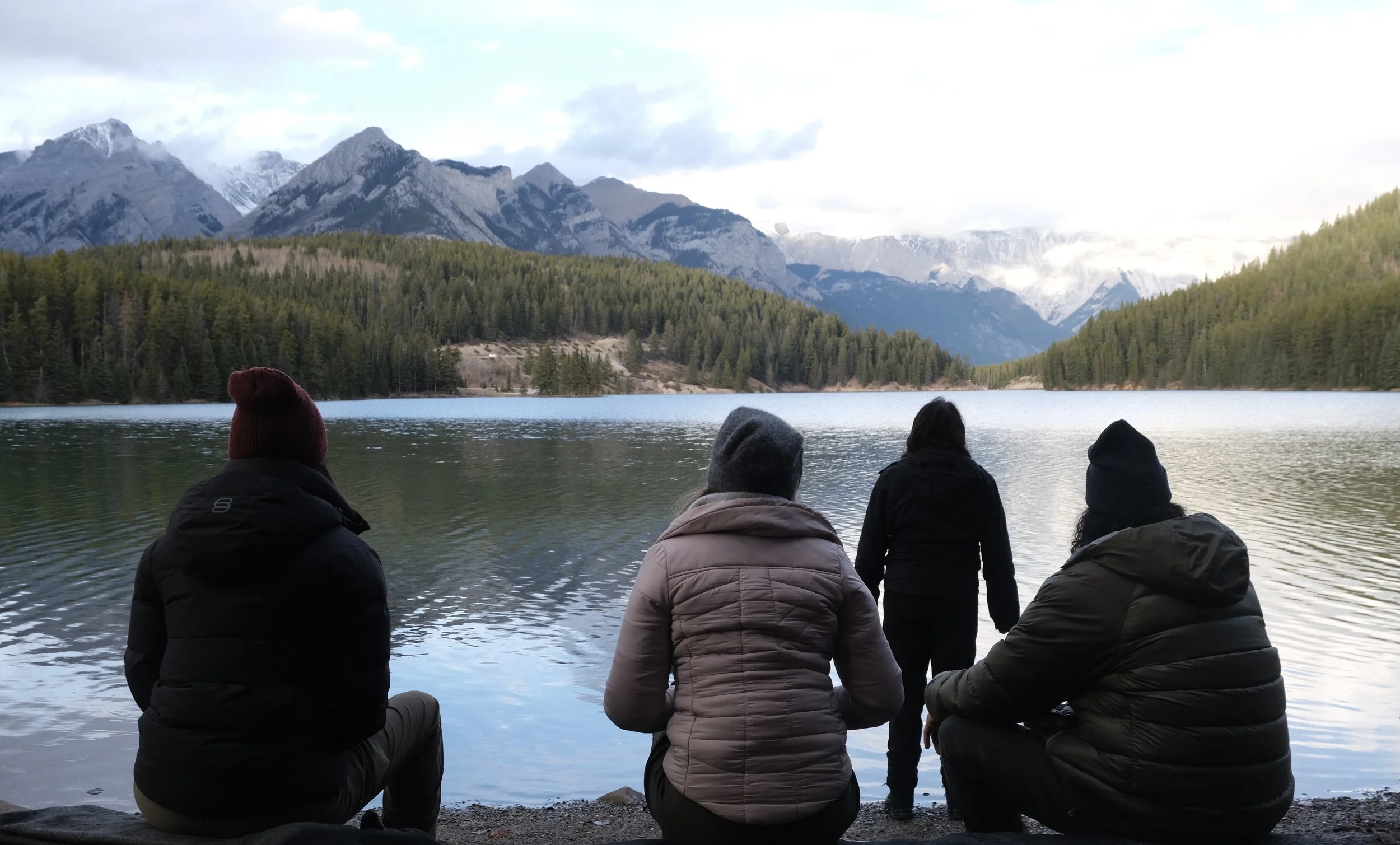Meadowlarks
Meadowlarks is a quiet, understated family drama that examines the nature of identity, particularly as it relates to the deep-seated trauma of the ‘60s Scoop, where Indigenous children in Canada were taken from their families often under the flimsiest of excuses to be raised by white parents. Through each of the siblings we see in Meadowlarks, brought to life through subtle and moving performances from its main cast, we see the unexpected ways in which this trauma can present itself in their day-to-day lives. The result is a moving and emotionally resonant production, sometimes sad but often inspiring as they take the initiative to rebuild the relationships that had been severed for them as children.
When we first encounter the reunion of a group of estranged siblings, separated from one another decades earlier as children, the mood is … well, a little awkward. They’re eager for the connection they’ve spent their lives craving, even if they didn’t realize it then, but they don’t really know how to be around each other. Although they’re all siblings, they’ve all been raised in such different environments that they’re coming to this reunion with little in common except DNA, a few fleeting memories for the older siblings, and this shared trauma. As they spend the weekend together, they develop a shaky bond – one that serves to underscore the enormity of what has been stolen from them.
Perhaps the most interesting element of Meadowlarks is how all of the siblings are written, and how their experiences within the ‘60s Scoop couldn’t be more different – or their reactions to it as adults, for that matter. The eldest, George, couldn’t even bring himself to come to the reunion, knowing that the emotions it would dredge up would be too difficult for him to handle. Anthony has a sunny disposition, but carries the scars of being bounced from foster home to foster home. The middle sister plays her cards pretty close to the chest, but her past alcohol abuse and the emotional reactions she has to any attempts to probe into her past make it clear she’s dealt with a lot in her life.
Marianne was raised in Belgium, uprooted to an entirely different culture, and lacks a shared identity even as a Canadian to relate to her siblings. She more than any of them has had her life completely severed from its Indigenous origins, so it makes sense that she’s the one who is interested in reconnecting not just with her siblings, but her tribe. But the fact that their experiences have been so different and yet so similar at the same time speaks to the universality of the childhood trauma they’ve dealt with, that has lingered with them and affects an entire generation of Indigenous adults.
Meadowlarks is an understated film – it doesn’t rely on flashy, emotional monologues to soaring music to get the job done. Instead, much of the emotional weight of the film comes from the characters trying to find ways to avoid addressing the pain that they carry. But there are moments – particularly when they interact with Indigenous people who weren’t separated from their culture and families – when there’s a quiet sense of depth to the proceedings. When they’re invited to participate in a tribal ritual, and each approaches the unfamiliar hand motions and ceremonial nature of it with a little bit of awkwardness but a determination to commit to the experience.
The camaraderie that develops between the set of siblings goes a long way in establishing Meadowlarks’ emotional credibility. As they become more connected to one another, they’re slowly able to peel back some of the layers of armor they’ve developed for their own protection, allowing themselves to be genuinely vulnerable possibly for the first time in their lives. As an intimate look at the impact of Canadian social policies towards Indigenous communities, Meadowlarks creates a profound impression and a moving cinematic experience for the viewer, one that deserves to be seen by as wide an audience as possible.
Directed by Tasha Hubbard
Starring Michael Greyeyes, Carmen Moore, Alex Rice, Michelle Thrush
Runtime 91 min
Language English
